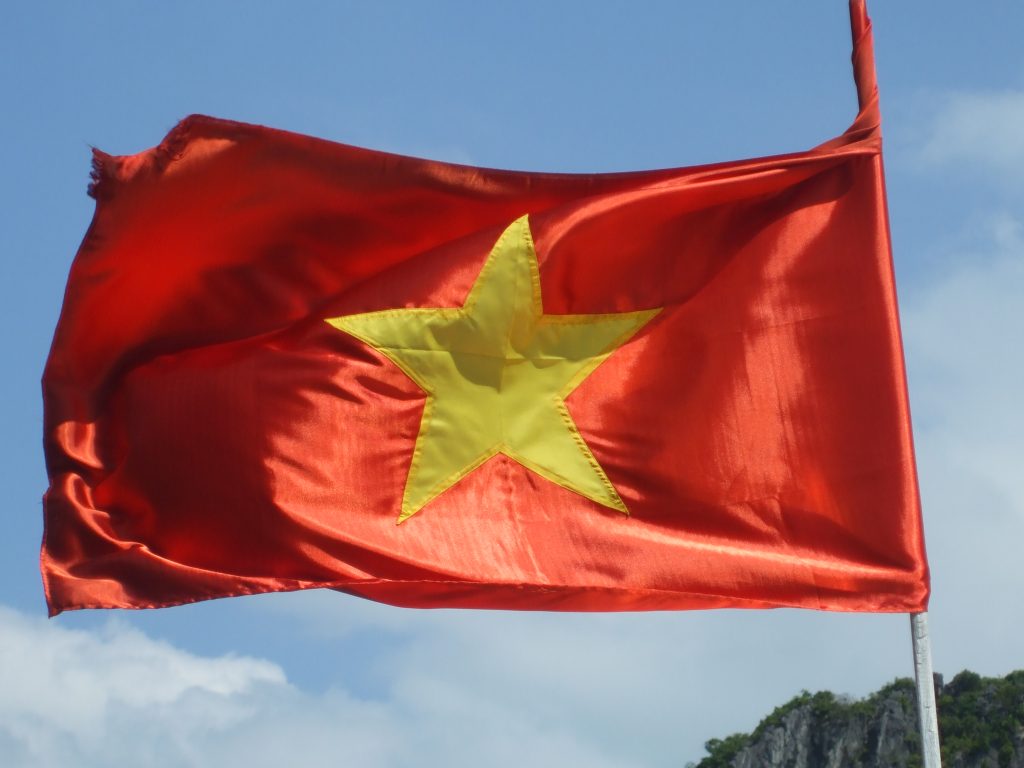Vietnam demands Meta and other platforms use AI to find and remove ‘toxic’ content
First posted September 25, 2023 11:40am EDT
Last updated September 25, 2023 11:40am EDT
All Associated Themes:
- Foreign Policy
- Social Media
External References
Facebook helped bring free speech to Vietnam. Now it’s helping stifle it, The Washington Post
Exclusive: Vietnam threatens to shut down Facebook over censorship requests – source, Reuters
Facebook Bowed to Vietnam Government’s Censorship Demands: Report, Rolling Stones
Vietnam to require 24-hour take-down for “false” social media content, Reuters
Vietnamese government is using its new digital laws to crack down on dissenters, Scroll.in
Vietnam wants Facebook, YouTube, TikTok users to verify identities, Nikkei Asia
Vietnam demands Facebook, Google, and YouTube deploy AI systems to filter ‘Toxic’ content, Mint
Vietnam arrests Facebook user for attempt to ‘overthrow the state,’ Reuters
Vietnam tells foreign social media to use AI to detect ‘toxic’ content, Reuters

The Vietnamese government insisted that Meta and other platforms use artificial intelligence to detect and remove “toxic” content, the latest directive in its mounting censorship requirements for social media companies. Since 2018, Meta, in particular, has been criticized for making several censorship concessions to the country.
Key Players
Meta Platforms Inc., formerly known as Facebook Inc., is a multinational technology conglomerate headquartered in Menlo Park, California, headed by CEO Mark Zuckerberg. One of the most powerful and influential companies in the world, Meta is now the parent of Facebook, Instagram, and WhatsApp. In 2021, former employee-turned-whistleblower Frances Haugen testified that Meta was engaged in alarming ethics and misinformation practices.
Vietnam, a Southeast Asian country ruled by a single-party communist government, has an authoritarian political system, where the rights to expression, assembly, press, and religion are often stifled. The government has released countless pieces of legislation aimed at stifling Free Speech online, many of which Meta has complied with. In 2018, Meta’s Vietnamese market was worth over $1 billion.
Further Details
In 2008, Facebook launched in Vietnam, and currently boasts roughly 68 million users nationwide. For a while, it served as a safe haven where Vietnamese people could discuss politics and current events. But in recent years, the government has cracked down on the platform.
In April 2020, after Communist Party officials threatened to shut down the platform, Meta made several concessions, such as increased censorship of “anti-state” rhetoric. In its first biannual transparency report of 2020, Meta admitted to blocking 834 items in Vietnam.
But even after the concessions, the government threatened to shut Meta down by November 2020. After Meta agreed to increase censorship of anti-state sentiment, it blocked more than 2,200 posts by Vietnamese users. In January 2021, as Vietnamese officials were selecting new Communist Party leaders, local activists and Free Speech advocates alleged that Meta had given the Vietnamese government “near-total control over the platform,” The Washington Post reported.
In August 2021, Bui Van Thuan, an activist blogger, was arrested days after criticizing government lockdown plans. His indictment alleged that he was guilty of “making, storing, disseminating or propagandizing information, materials and products that aim to oppose the State of the Socialist Republic of Vietnam.”
In November 2022, Vietnam’s information minister announced that any “false” content on social media platforms had to be removed within 24 hours, shortening the previous 48-hour period. He also announced the country would heighten administrative fines for noncompliance.
Such policies led to the arrests of dissidents. The Committee to Protect Journalists reported that in 2022, at least 23 other journalists were imprisoned in Vietnam.
Outcome
Whistleblowers allege Meta censorship list
In 2023, speaking on the condition of anonymity, two former Facebook employees in Asia told The Post that Meta has an internal list of Vietnamese Communist Party officials who must not be criticized. While Meta did not directly respond to questions related to the specific list, it defended its actions in Vietnam.
“Our focus is ensuring as many Vietnamese people as possible are able to use our platform to build community and express themselves,” Rafael Frankel, Meta’s director for public policy in Southeast Asia, told The Post.
Throughout Vietnam’s continuous censorship of social media platforms, pro-democracy and environmental groups have also been the target of government-led mass reporting campaigns, which has landed “people in jail for even mildly critical posts,” The Post reported.
Vietnam orders social media companies to use AI to eliminate ‘toxic’ content
On June 30, the Vietnamese government ordered social media platforms to implement AI algorithms to detect and eliminate “toxic” content, adding an additional restriction to its litany of social media constraints.
“This is the first time Vietnam has announced such an order,” stated Vietnam Television (VTV), a state-run broadcaster that reported on the measure at an event that was open to selected news outlets.
VTV did not report on details regarding the implementation process, or how social media platforms were expected to abide by the new regulation. Under the order, “toxic” content includes offensive material, fake news, and information that opposes the government.
As of Sept. 25, 2023, there were no further updates.